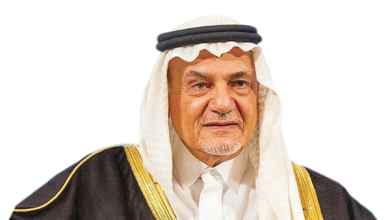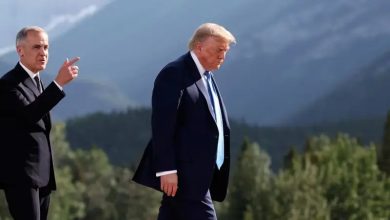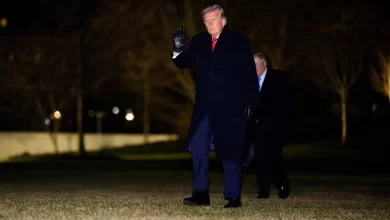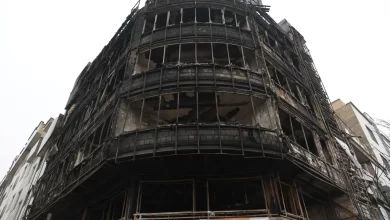Bloomberg: Wealthy Russians are Leaving Dubai after it Lost its Attractiveness
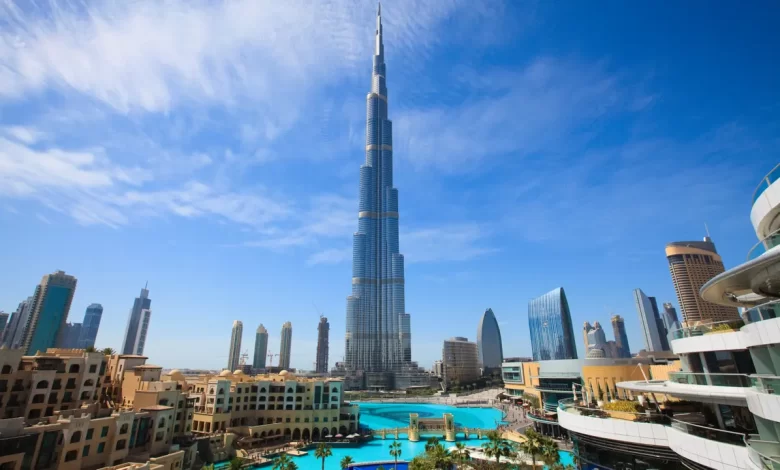
Sudan Events – Agencies
Since the invasion of Ukraine nearly two years ago, Dubai has become a favorite destination among wealthy Russians looking to raise money or build a new life. But the temptation of this Emirate has begun to diminish now, due to the high costs of living and the strictness of its banks in enforcing American sanctions, according to what Bloomberg published in an extensive report on Thursday morning.
Russian money flows to the UAE, of which Dubai is a part, are showing signs of slowing down, according to bankers, executives and investment specialists.
Although none of them expected a large-scale exodus of cash to actually occur in the UAE, executives said it had likely contained most of the benefits of Russian money and was unlikely to see further large inflows.
Some Russian expats are considering moving to new places or even returning home, as the rush of expats to Dubai leads to higher rents and daily expenses. Unlike the United States and the European Union, the Gulf states do not impose sanctions on Russia.
However, Russian entities that open bank accounts are now likely to face scrutiny in local banks, as the UAE comes under increasing US pressure to address potential sanctions evasion, according to Bloomberg, citing people familiar with the matter who requested not to be disclosed.
In this regard, Philippe Amaranti , head of the Middle East for Henley & Partners, a company specializing in investment-based migration, says that his company sees that fewer Russians are settling in the Emirates, and “therefore, the trend is declining,” adding: “In fact, some of my Russian clients downsized their real estate assets they bought in Dubai two years ago, kept a small base here, but moved back to Moscow or to other very available and attractive areas, like Mauritius.”
Bloomberg quoted informed sources as saying that UAE-based banks, including Emirates NBD, Mashreq Bank and First Abu Dhabi Bank, have tightened scrutiny of Russian entities and have tried in recent months to ensure greater compliance with US sanctions.
Dubai-based bankers said that although the Russian middle class, which is not subject to sanctions, often had no major problems opening accounts, banks refused to deal with many sanctioned Russians. Some people with political affiliations or connections to sanctioned persons also encountered difficulties managing bank accounts.
Emirates NBD said in a statement that it is committed to combating financial crimes and follows “applied international sanctions,” but it declined to comment on the details, while Mashreq Bank and First Abu Dhabi Bank did not respond to requests for comment from “Bloomberg.”
Informed people said that MMC Norilsk Nickel PJSC, the largest mining company in Russia, also decided not to start trading in the UAE due to logistical and banking problems, while the company also refused to provide additional details.
The demand of wealthy Russians for Dubai real estate
In the immediate aftermath of the invasion of Ukraine, real estate agents in Dubai reported an increase in the number of wealthy Russians searching for properties in the emirate’s most prestigious neighbourhoods.
The UAE does not provide statistics on inflows by nationality. However, in the rankings of property buyers, Russian passport holders fell to third place in 2023, lagging behind Indians and Britons, after occupying first place in 2022, according to the Better Homes brokerage in Dubai.
In an interview with CNBC last January, Hussein Sajwani, president of the real estate development company DAMC, said that Russian demand is slowing down.
Banking difficulties in Dubai and reducing the number of employees
Russian companies that did not face banking problems faced other difficulties. The Swiss-registered fertilizer company EuroChem Group AG, founded by the sanctioned Russian billionaire Andrei Melnichenko who holds an Emirati passport, introduced itself to local media at a reception at the Arts Club in Dubai last year. They have since reduced their local staff, people familiar with the matter said, asking not to be disclosed.
In recent months, several functions, including public relations, have been moved back to Moscow, partly because maintaining operations in Dubai comes with record high rents and very expensive school bills, the sources said. They pointed out that the fertilizer company did not face a problem with its bank accounts in the Emirates and continues to operate them.
Eurochem said in a statement that it had reorganized some of its jobs in the Emirates, reducing some employees, while adding people in departments such as compliance, considering it “a routine work process driven by our internal organizational goals.”
Several wealthy Russians in Dubai interviewed by Bloomberg said they were considering moving to Europe or elsewhere in the long term, as the war with Ukraine enters its third year.
Among them is Maria, a 42-year-old Russian designer, who said that the high cost of living in Dubai and the desert heat in the summer forced her to consider options such as France or Berlin for her family. She asked to be disclosed by her first name only to maintain the confidentiality of her personal details.
Ivan Kozlov, 37 years old, also left his job as a derivatives regulator at VTB Capital in Moscow more than two years ago, and lived with his family in Turkey for about two months, then arrived in Dubai in May 2022, where he co-founded a company of Resolv Labs, which provides services for crypto-based investment products.
As the startup nears the end of its fundraising process, Kozlov is considering a move to Europe, perhaps to Spain, where one of his business partners lives. He said that although the UAE is a good place to do business, it has lifestyle issues, such as hot summers and limited opportunities for walking outdoors. “The main problem is that you don’t feel like it’s a place you can call home in the long term,” he said.
In late February, the UAE was removed from the gray list of global oversight, and Emirati officials are keen to prove that regulations will not be eased immediately after that, some people familiar with the matter told Bloomberg, noting that this has made the UAE and its financial institutions more stringent in dealing with Russian entities or executives, especially those facing sanctions.
Regarding this point, Associate Professor at the London School of Economics, Steven Hertog, said that the impact on the UAE’s economy will be relatively marginal, given the interest in it from wealthy people in other parts of the world. However, he said, “The impact on Dubai will be slightly greater than that on Abu Dhabi, given its greater dependence on foreign investment and real estate.”
However, United Aluminum Production Company (Rusal International) moved its global trade operations to Dubai at the end of last year.
Oil traders, many of whom moved from Geneva and London at the beginning of the war, still prefer the UAE, and use the dirham as a suitable alternative to the dollar, according to some people familiar with the matter. But even this group has faced tighter scrutiny since October 2023, when Washington strengthened enforcement of its price cap sanctions on crude oil, the sources said.
In any case, despite the pressure, the Russians are leaving their mark on Dubai. They now have their own medical facilities, dentists and a football academy in the emirate, but all this does not convince people like Kozlov to stay there, saying: “This is like an airport café where everyone is waiting for the next flight.”
